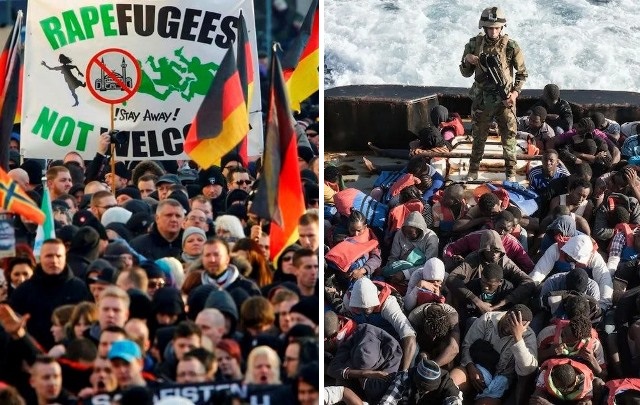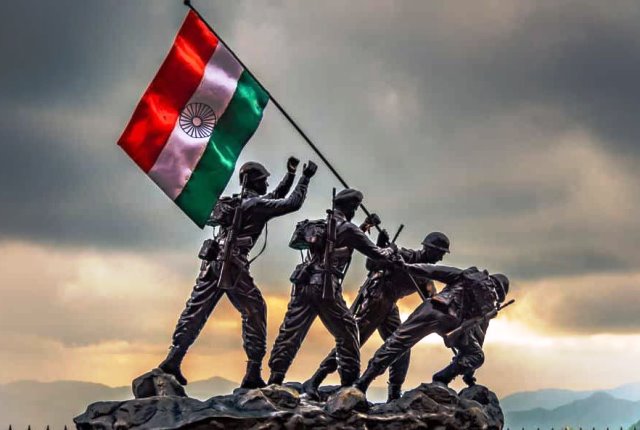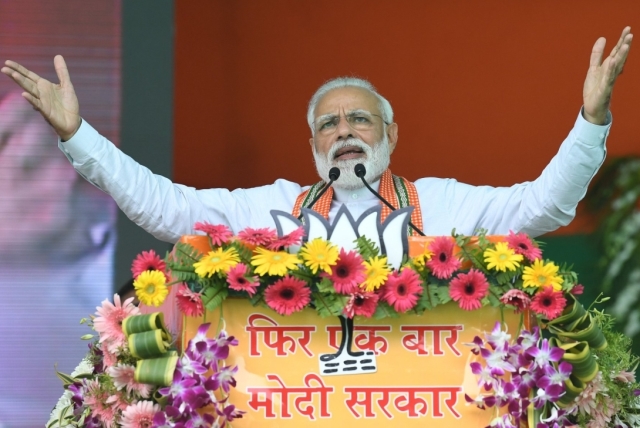
For A Land Far From Homeland
Growing up in the 1950s Bombay, one frequently heard of a neighbourhood ‘David’ migrating to Israel, to live in the homeland of the Jews.
The next decade saw a proliferation of English coaching classes to improve the language essential to “go phoren”. That continues, it is not difficult to guess, wherever people want to seek a better life in a far-off land, no matter the hardships and uncertainties that means.
My first contact with migrate-come-what-may was with the Gujaratis fighting to enter Britain. British passport holders had fled Idi Amin’s Uganda. Refused entry and unable to return to Kampala, they were in New Delhi, squatting at the British High Commission. Denied even basic facilities, they were shut out once they left the premises, becoming the ‘nowhere’ people. Till London grudgingly accepted them.
Fifteen years later, I met some in downtown London. It was heartening to see them fairly well-settled. Newspaper kiosks were one business and running motels was another. By that time, Patels had become synonymous with motels in America as well. The children from those families went to prestigious universities they could only have read about in an earlier era.
The process of migration from poor and developing nations to industrialised ones, legal or otherwise – more of the latter – has multiplied and proliferated over the decades. All indicators are that it is going to increase, with growing poverty, the global recession, climatic changes, sectarian violence, the emergence of dictatorial and ‘nationalist’ regimes and currently, an unwinnable, but economically debilitating, Ukraine conflict.
The industrialised nations of the West are feeling the pinch of illegal migration. Earlier this month, British Prime Minister Rishi Sunak, dressed in a bulletproof vest, participated in operations to identify those who cross the English Channel illegally. The European Union’s border and coast guard agency says that the number of attempts by migrants to enter Europe without authorisation reached around 330,000 in 2022. They are from Syria, Afghanistan, Myanmar, and African of various nationalities – dogged by natural calamities and man-made ones like armed conflicts. Even if peaceful, urbanisation, industrialisation and the building of roads have uprooted people who have lived off the land, not required to leave their homes.
Less talked about India’s otherwise win-win engagements with the developed world these days are its illegal migrants and over-stayers. In Britain alone, Indians are now the second largest group of migrants crossing into the UK over the English Channel on risky small boats, according to the UK Home Office. As per the data, 675 Indian nationals entered the country by small boat between January and March, amid a “surge in attempts to evade work visa restrictions”, The Daily Mail has reported.
The migration scene is similar across the Atlantic. I am reminded of two films both, incidentally, bearing the same name, The Illegal. They narrate stories of the young chasing the American ‘dream’ and what it entails. The 2019 film is the Indians’ saga. But let me pen the poignant climax of the1970s film that is difficult to locate on the Internet. It has a Mexican couple with a pregnant wife. The man is struggling at the American Immigration Counter when the lady gets labour pains. She darts bypassing the border police and clutches the American flag and delivers. “My baby is American,” she screams with a mix of pain and satisfaction.
Flash forward to this year when an entire family from Gujarat – a man, his young wife and two children – died in a road accident while illegally being ferried from Canada to the USA. The tragedy occurred during what was, perhaps, the last lap of their travel undertaken over two months, after selling the family’s property back home.
ALSO READ: Kabootarbaazi: India Illegal Immigraton Racket
Shahiza Raza, a Pakistani woman field hockey player and 170 others – Afghans, Pakistanis and Iranians – set sail from the Turkish port of Izmir in February and crashed near the Italian coast. Only her body returned to Quetta to her mother and brain-damaged child.
Over the years, we are familiar with “boat people” who travel via Thailand, Vietnam and Malaysia having Australia as their dream destination. They are unwanted. The social tensions that ensued made a former prime minister warn: “We are a Christian country.”
For close to 50 years, the Gulf boom has attracted millions of people from across the globe, more than the populations of those Sheikhdoms who have benefitted from the burgeoning oil economies. That region from where many developing countries earn billions as remittances is also getting impacted by geo-political and geo-economic changes like the Ukraine conflict that choked Europe’s energy supplies at one end and on the other, had Russian oil sold at concessional rates. The Gulf boom is bound to be hit and the first impact will be on the workforce.
Pakistani attorney-author Rafia Zakaria writes in Dawn newspaper on the latest boat tragedy on the Mediterranean Sea that had 750 people, 400 of them said to be Pakistanis. She notes that the gradual decline in employment opportunities available in Saudi Arabia and the rest of the Gulf in general, all of which are trying to transition to more locally staffed workforces, are one reason that more and more Pakistanis have been found travelling on migrant boats.
She draws a larger picture for every nation, whether importing or exporting the labour force. Her warning about the foreseeable future cannot be ignored.
“As artificial intelligence and remote work get more integrated into the workforce, developed industrialised democracies in the EU and also the UK and US are going to decline further. In other words, all of these countries are looking at the impending employment crises, particularly in the low-skilled sector.”
She points out: “Already, stores have stopped hiring cashiers and shelf stockers because these jobs have become automated. Soon jobs that do not require much local context information, such as computer programming, data sciences etc, are also going to end up in countries that can provide these services at the lowest cost.
“Developed economies are aware of this and of the fact that low-skilled workers will become redundant first. This is going to require these wealthier countries to institute some sort of benefits such as a universal basic income so that the poor in their countries can survive.”
This transformation is bound to create complexities that make migration increasingly difficult. They have already begun to go beyond the normal protectionism of local economies. They will generate cultural forces such as ever-increasing racism and xenophobia to support these restrictive policies.
The writer can be contacted at mahendraved07@gmail.com




This is hardly a new development. This sort of tragic global work chasing has often been highlighted. Even the large Indian contingent of Indian gatecrashers.
Perhaps the tragedy lies in the fact that
None from the government has taken note of this frequently repeated tragedies. Who remembers any mention in our papers, except perhaps a little para tucked into another report?
When will these recurring tragedies be noted and action be taken to increase job opportunities across the board, so our people can be fruitfully employed in adequate jobs to blossom at home, rather than drown in rough seas or in foreign prisons?
Thanks.
These tragedies are likely to recur as things worsen.
Have sent you a piece on your email that points out to there being little debate and remorse, beyond the newspaper headlines. And the contrast with the shock and awe over the loss of the submersible vessel that took with it those enthusiastic about seeing Titanic’s wreckage.